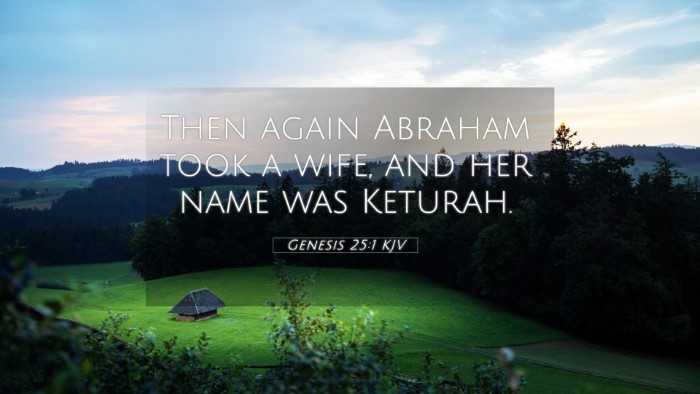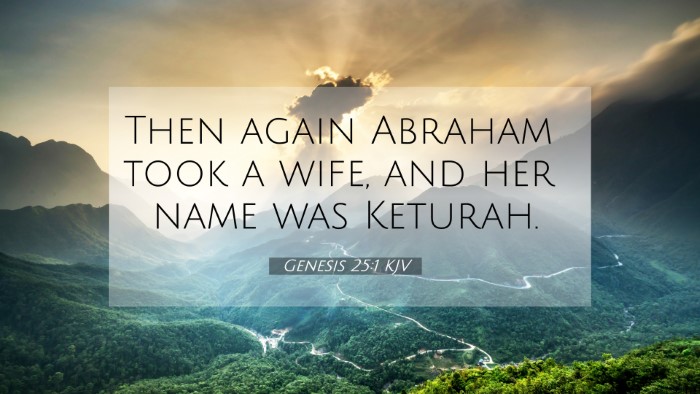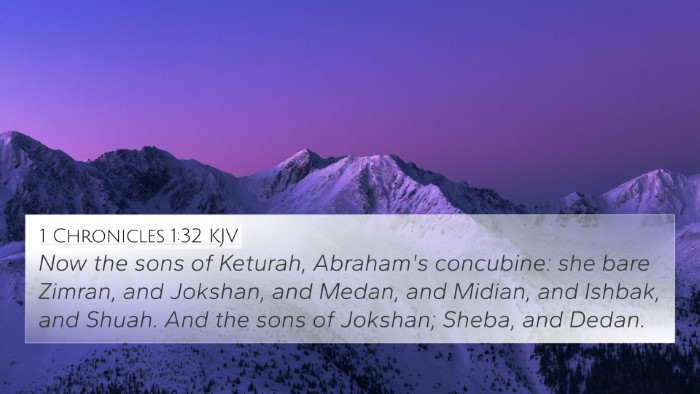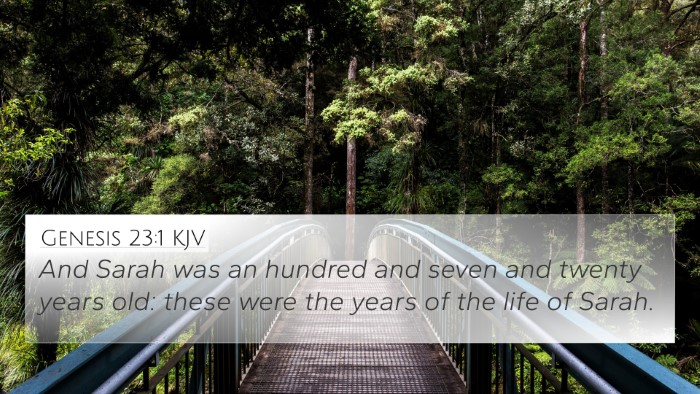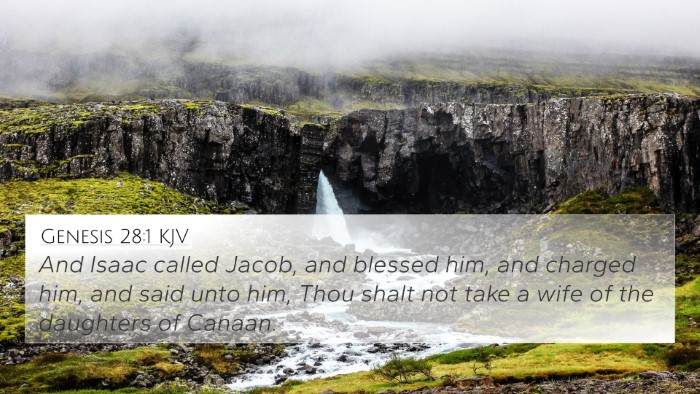Old Testament
Genesis Exodus Leviticus Numbers Deuteronomy Joshua Judges Ruth 1 Samuel 2 Samuel 1 Kings 2 Kings 1 Chronicles 2 Chronicles Ezra Nehemiah Esther Job Psalms Proverbs Ecclesiastes Song of Solomon Isaiah Jeremiah Lamentations Ezekiel Daniel Hosea Joel Amos Obadiah Jonah Micah Nahum Habakkuk Zephaniah Haggai Zechariah MalachiChapter
Genesis 1 Genesis 2 Genesis 3 Genesis 4 Genesis 5 Genesis 6 Genesis 7 Genesis 8 Genesis 9 Genesis 10 Genesis 11 Genesis 12 Genesis 13 Genesis 14 Genesis 15 Genesis 16 Genesis 17 Genesis 18 Genesis 19 Genesis 20 Genesis 21 Genesis 22 Genesis 23 Genesis 24 Genesis 25 Genesis 26 Genesis 27 Genesis 28 Genesis 29 Genesis 30 Genesis 31 Genesis 32 Genesis 33 Genesis 34 Genesis 35 Genesis 36 Genesis 37 Genesis 38 Genesis 39 Genesis 40 Genesis 41 Genesis 42 Genesis 43 Genesis 44 Genesis 45 Genesis 46 Genesis 47 Genesis 48 Genesis 49 Genesis 50Verse
Genesis 25:1 Genesis 25:2 Genesis 25:3 Genesis 25:4 Genesis 25:5 Genesis 25:6 Genesis 25:7 Genesis 25:8 Genesis 25:9 Genesis 25:10 Genesis 25:11 Genesis 25:12 Genesis 25:13 Genesis 25:14 Genesis 25:15 Genesis 25:16 Genesis 25:17 Genesis 25:18 Genesis 25:19 Genesis 25:20 Genesis 25:21 Genesis 25:22 Genesis 25:23 Genesis 25:24 Genesis 25:25 Genesis 25:26 Genesis 25:27 Genesis 25:28 Genesis 25:29 Genesis 25:30 Genesis 25:31 Genesis 25:32 Genesis 25:33 Genesis 25:34
